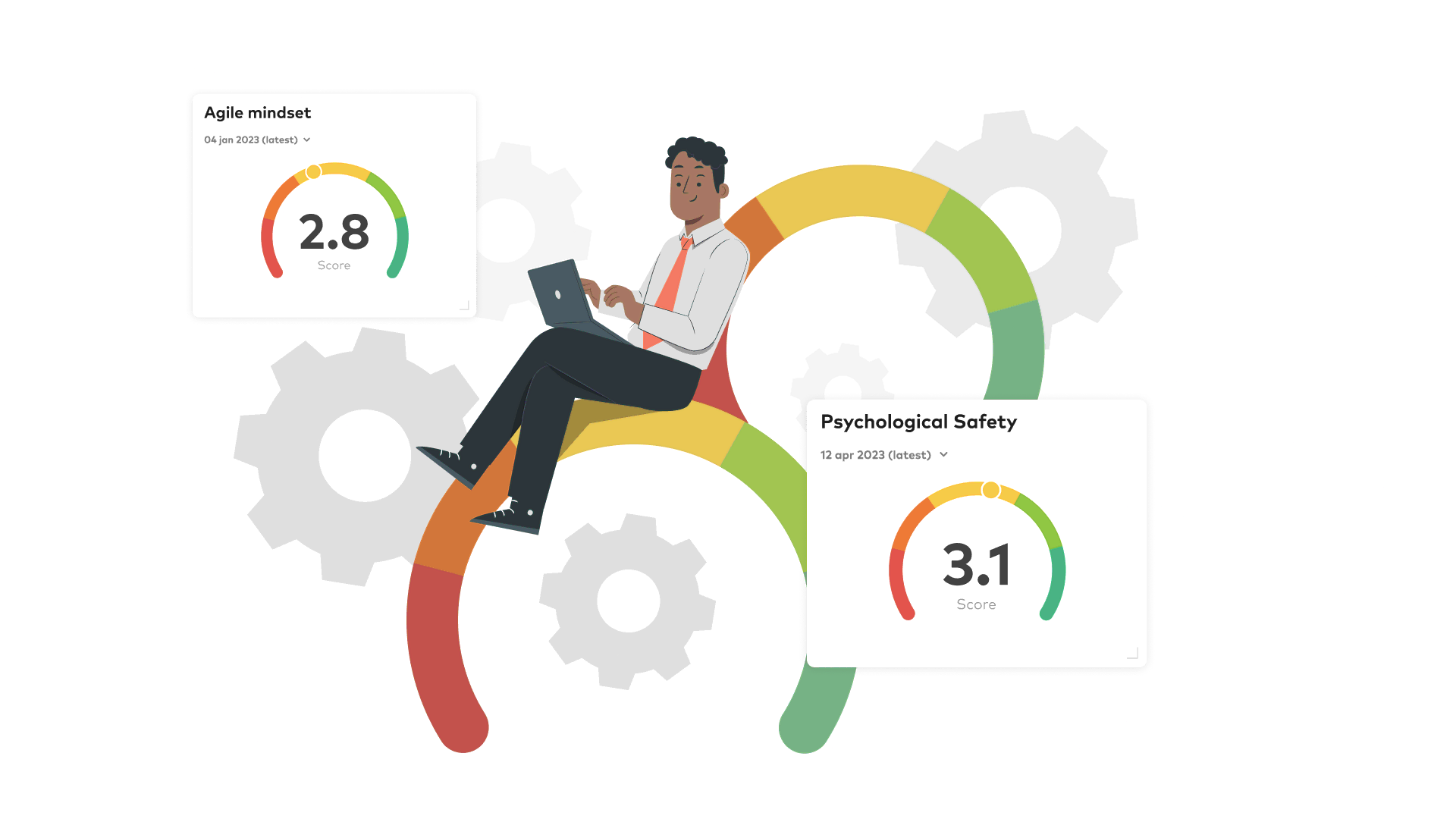
Cultural health checks with the help of surveys



- Using the example of the eNPS
- How can People & Culture experts apply surveys?
Measuring and monitoring organizational culture is pivotal for various reasons, and using specialized surveys such as eNPS (Employee Net Promoter Score) provides a nuanced understanding of how employees feel.
Organizational culture isn't static; it evolves over time due to leadership changes, business strategy shifts, or external economic and social factors. Regular monitoring allows organizations to identify these shifts and adapt accordingly. An organization's culture significantly influences how engaged employees are. Engaged employees are often more productive, more loyal, and can drive better business outcomes. By understanding the current state of the culture, interventions can be made to improve engagement and, consequently, retention.
In today's competitive job market, organizational culture is a key differentiator. Prospective employees are not only looking at compensation but also at the company's values, work environment, and growth opportunities. A positive, inclusive culture can be a major draw. Unhealthy organizational cultures can lead to increased conflicts, unethical behaviors, and potential legal liabilities. Regularly measuring culture can help in spotting red flags early and taking corrective action. With regular insights into the state of organizational culture, leadership can make informed decisions related to strategy, personnel, and operations.
Using the example of the eNPS
eNPS surveys specifically gauge an employee's likelihood to recommend the company as a place to work. This is a clear indicator of their overall satisfaction and engagement.
eNPS questions are straightforward, leading to higher response rates. The simplicity allows for quicker analysis and action.
eNPS provides a standardized metric that companies can use for benchmarking against competitors or industry standards.
Build and visualize a skills-based organization with a collaborative culture
How can People & Culture experts apply surveys?
Being open about the intent and frequency of such surveys reinforces the idea that the company values feedback and is committed to continuous improvement. It sets the expectation for feedback loops and creates a sense of accountability. By making these surveys an integral part of the job, People and Culture professionals can gather actionable insights that directly relate to their domain.
This allows for strategic planning and interventions based on real data, not just gut feelings. Demonstrating a genuine interest in understanding and enhancing the employee experience helps build trust between the workforce and leadership. Employees feel heard and valued when they see tangible changes and improvements based on their feedback.
In conclusion, regular measurement and monitoring of organizational culture, backed by specialized surveys, equip People and Culture professionals with the data and insights they need to cultivate a positive, inclusive, and productive work environment. It's not merely a task—it's foundational to organizational success.
By submitting this form, I confirm that I have read the privacy policy and that I consent to the processing of my personal data by agyleOS for the purposes stated. In the event of consent, I can revoke my consent at any time. Furthermore, by submitting the form, I agree to the general terms and conditions.



